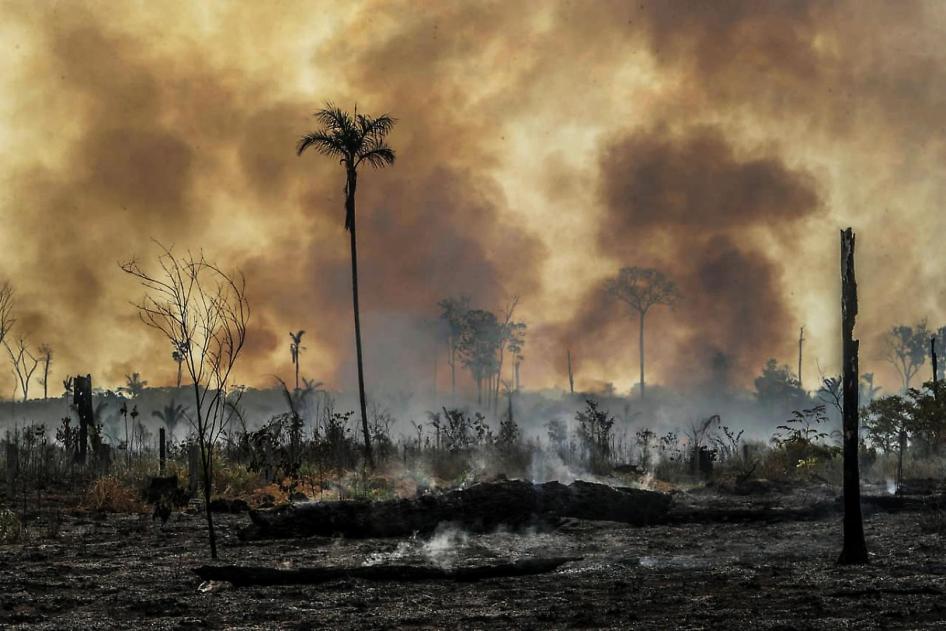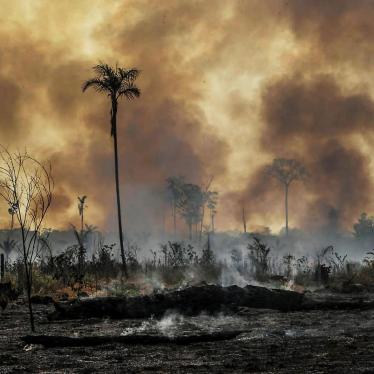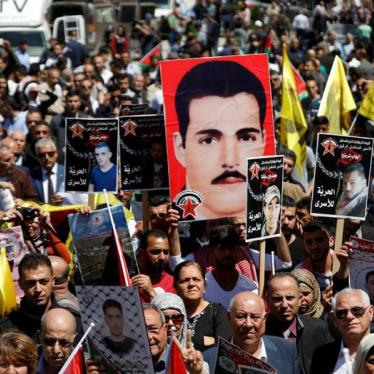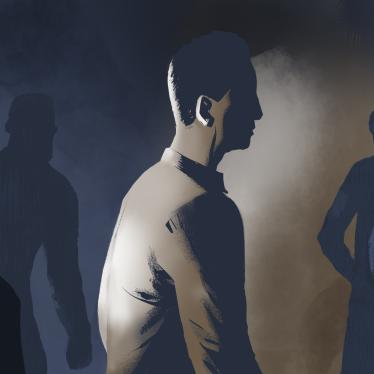(São Paulo) – The government of President Jair Bolsonaro should stop undermining environmental protections in Brazil and take decisive action against criminal networks that are destroying the Amazon rainforest and threatening and attacking enforcement agents and local residents, Human Rights Watch said today in its World Report 2020.
President Bolsonaro has also embraced anti-rights policies on issues related to the environment, public security, free expression, and civil society. The courts and Congress blocked some of those policies, but others have gone forward.
“President Bolsonaro’s assault on environmental law enforcement agencies is putting the Amazon and those who defend it at great risk,” said Maria Laura Canineu, Brazil director at Human Rights Watch. “Without any proof, his government has blamed nongovernmental organizations, volunteer firefighters, and Indigenous people for the Amazon fires, while failing to act against the criminal networks that are felling trees and burning the forest to make way for cattle and crops, and threatening and attacking those who stand in their way.”
In the 652-page World Report 2020, its 30th edition, Human Rights Watch reviews human rights practices in nearly 100 countries. In his introductory essay, Executive Director Kenneth Roth says that the Chinese government, which depends on repression to stay in power, is carrying out the most intense attack on the global human rights system in decades. He finds that Beijing’s actions both encourage and gain support from autocratic populists around the globe, while Chinese authorities use their economic clout to deter criticism from other governments. It is urgent to resist this assault, which threatens decades of progress on human rights and our future.
The Bolsonaro administration has undercut Brazil’s environmental agencies by slashing budgets, removing experienced managers, and restricting enforcement agents’ ability to operate in the field. It has also indicated it will not comply with Brazil’s climate change commitments.
Preliminary data based on deforestation alerts show that from January through mid-December, deforestation in the Amazon went up by more than 80 percent. At the same time, Ibama, Brazil’s main federal environmental agency, reduced the number of fines it issued for illegal deforestation by 25 percent from January through September, compared to the same period in 2018, according to Ibama’s website.
A new requirement for a “conciliation” hearing for all environment-related fines entered into effect in October 2019. While such hearings are pending, the deadlines to pay are suspended. Yet, the Ministry of the Environment had held no conciliation hearings as of January 7, according to data Human Rights Watch obtained through a Freedom of Information Act request. That means that all new administrative proceedings against people and companies who allegedly violated environmental law are effectively on hold.
Weakened environmental law enforcement enhances the risk to forest defenders by giving free rein to criminal networks engaged in illegal deforestation. The Indigenist Missionary Council (CIMI), a nonprofit organization, reported 160 cases of illegal logging, land grabbing, and other infringement upon Indigenous territories from January through September.
Officials and local residents told Human Rights Watch that acts of intimidation by criminal groups in the Amazon have increased significantly under President Bolsonaro. Three Indigenous people were killed during November and December.
President Bolsonaro has suggested that criminals should “die like cockroaches.” He sent a bill to Congress that would automatically treat police or military killings as acts of self-defense if carried out against anyone who openly carries a gun or engages in other criminal acts. International human rights standards only allow to deliberately kill people when necessary to protect life.
Police in Rio de Janeiro killed 1,686 people from January through November of 2019, a record number.
While some police killings are in self-defense, many others are the result of unlawful use of force. Police abuses antagonize the very communities whose cooperation the police need to effectively fight crime.
The Bolsonaro government has tried to undermine torture prevention efforts. It attempted to fire the experts who make up the National Mechanism to Prevent and Combat Torture, a body established by law, and dismissed evidence that a federal force had subjected inmates to torture in Pará state.
Gender-based violence continued to be a chronic problem in Brazil. One million cases of domestic violence were pending before the courts in 2018. While the Bolsonaro government said one of its human rights priorities was policies toward women, the Secretariat of Policies for Women had used only about 40 percent of its budget by November.
President Bolsonaro has also harassed news media, nongovernmental organizations, and tried to restrict children’s access to comprehensive sexuality education.







